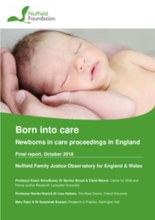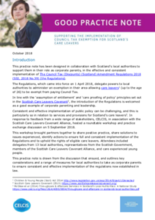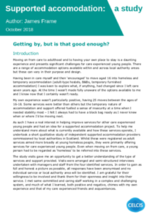Displaying 731 - 740 of 1177
This event will explore how practitioners working with looked after children can provide opportunities for young people to build these important relationships and protect and support those that already exist.
LSE is currently recruiting for a new Volunteer Centre Coordinator.
This report aims to provide the first estimate and profile of newborns in care proceedings in England using national population-level data and provide a critical discussion of the findings for further consideration and development by family justice stakeholders.
This practice note is drawn from the discussion and outlines key considerations and a range of measures for local authorities to take as Corporate Parents to ensure consistent and effective implementation of the regulations, now established in law.
The aim of this study was to undertake a short qualitative study of four independent supported accommodation providers commissioned by local authorities for care experienced young people in Scotland.
The present research sought to explore the capacity, experience and understanding of local authorities to provide a support system that can best ensure the wellbeing of children, as it has been suggested that outside of the large urban authorities there is limited experience of working with separated children.
This paper summarises how genetically-informed research designs can help disentangle genetic from environmental processes underlying psychopathology outcomes for children, and how this evidence can provide improved insights into the development of more effective preventative intervention targets for adoption and foster-care families.
This paper is rooted in research commissioned by one local authority that used an innovative visual ‘river of experience’ co- production approach to understand better the experiences of children and families on their journeys to the edge of care and to inform how statutory services might respond ‘better’, and possibly earlier, to prevent children being taken into care.
In this video, the BBC's Ashley John-Baptiste, who grew up in care himself, meets two care leavers as they face the financial and emotional challenges of starting higher education.
The post of Policy, Research and Engagement Officer, is a new role which will enable Home for Good to develop its role in inspiring and equipping the UK church to promote family-based care for children overseas.




